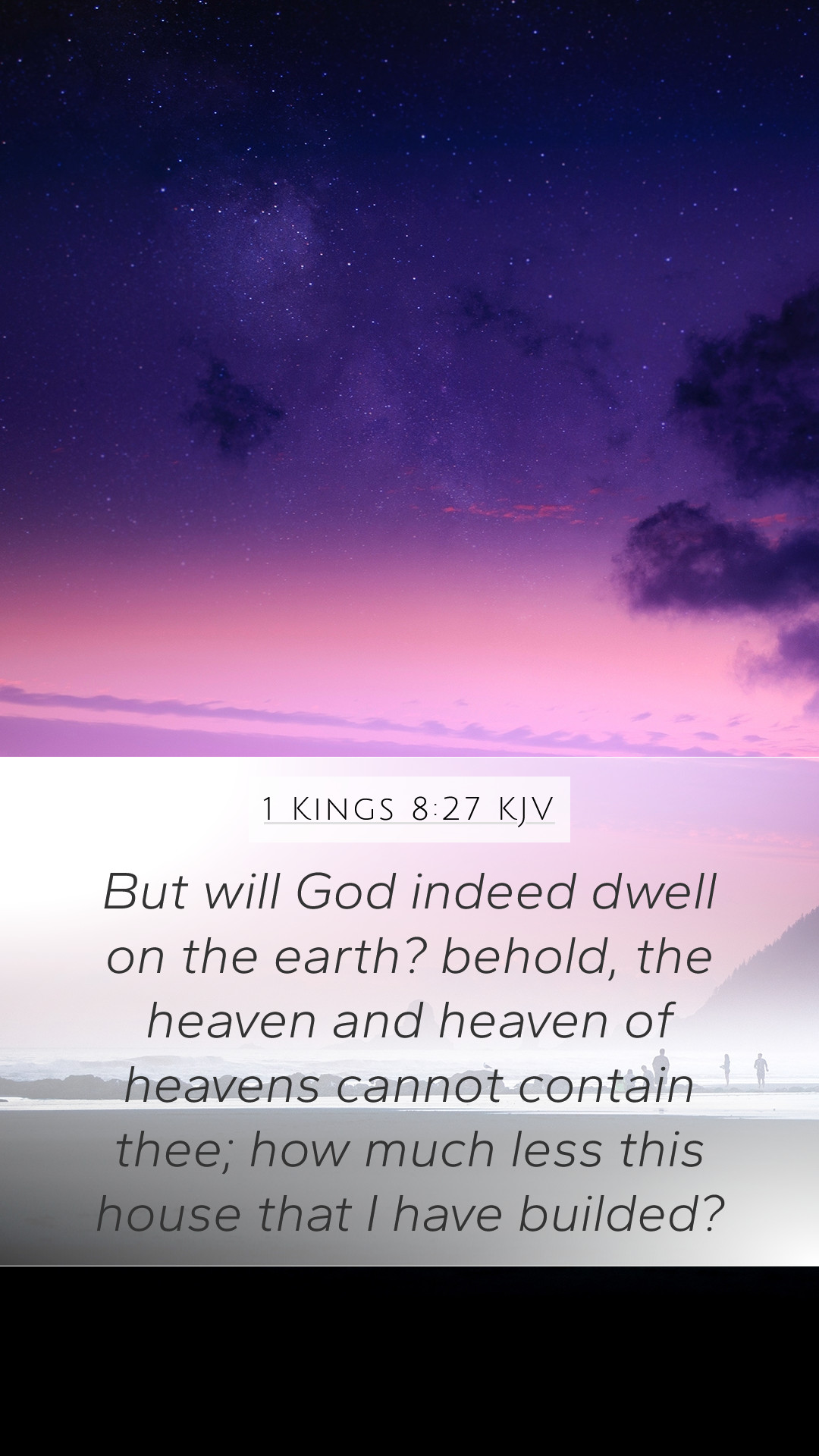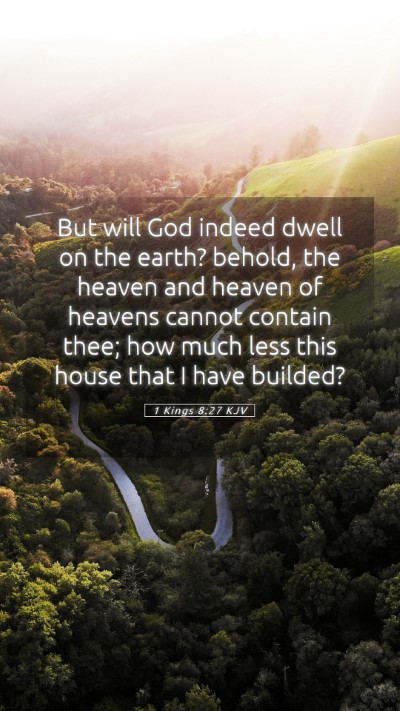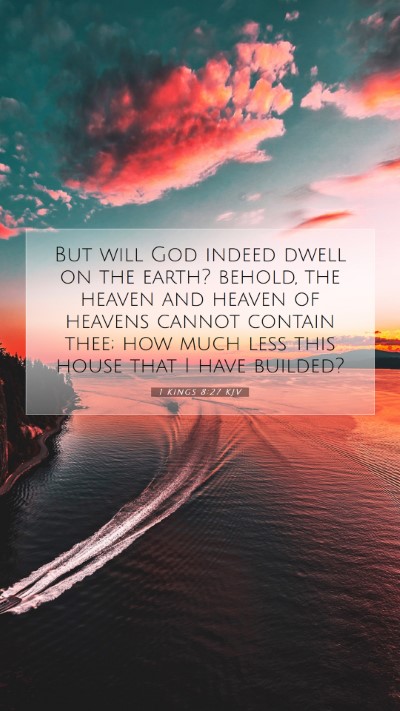1 Kings 8:27 - Biblical Exegesis and Commentary
Bible Verse: “But will God indeed dwell on the earth? Behold, the heaven and heaven of heavens cannot contain thee; how much less this house that I have builded?” (1 Kings 8:27)
This verse is part of Solomon's prayer during the dedication of the Temple he built in Jerusalem. It encapsulates significant theological insights regarding God's nature in relation to space and His divine glory.
Meaning of the Verse
The verse raises a profound question about the omnipresence of God. Solomon acknowledges the limitations of the earthly temple to contain the divine presence of God.
Insights from Public Domain Commentaries
-
Matthew Henry:
Henry emphasizes that God's omnipresence cannot be confined to any singular location, even one as grand as the Temple. He suggests that Solomon is recognizing that while the Temple may serve as a place for worship, it does not encapsulate the fullness of God's glory.
-
Albert Barnes:
Barnes elaborates on the vastness of creation compared to the Temple, highlighting that if God created the heavens and the earth, surely He cannot be limited by human constructs. The Temple is a representation of God’s presence but never a limitation to it.
-
Adam Clarke:
Clarke points out that Solomon is awe-struck by the notion of building a house for God and recognizes that human efforts to contain the divine are insignificant. He also notes that the Temple was intended for God's worship and as a symbol of His covenant with Israel.
Theological Implications
This verse highlights several key theological implications for understanding Scripture:
-
God’s Omnipresence:
The acknowledgment that God cannot be confined to a building showcases His omnipresence, an essential attribute of God that believers must understand.
-
The Purpose of the Temple:
While the Temple is significant in biblical history as a place of worship, it symbolizes the relationship between God and His people rather than a literal dwelling place.
-
Human Limitations:
It serves as a reminder of human limitations in attempting to contain or comprehend the divine nature of God fully.
Application of 1 Kings 8:27 to Daily Life
Understanding the implications of this verse can enrich one’s faith and worship experience:
- Personal Worship: Recognizing that God is present everywhere invites believers to nurture a personal relationship with Him beyond the church walls.
- Community and Fellowship: This understanding can deepen community worship where groups can gather, reflecting on God’s presence in their lives.
- Spiritual Growth: Embracing God’s omnipresence encourages believers to seek spiritual growth through prayer and scripture, engaging in fulfilling Bible study practices.
Related Bible Cross References
- Psalm 139:7-10: Discusses God's omnipresence and how no place is beyond His reach.
- Acts 17:24-25: Paul expresses how God does not dwell in temples made with hands.
- Isaiah 57:15: Highlights God’s presence with the humble and contrite spirit.
Conclusion
1 Kings 8:27 serves as a monumental verse that encourages deeper contemplation on the nature of God. As we engage in Bible study and exploration of Scripture, it is essential to understand the significance of God’s omnipresence and its implications for worship and relationship with Him.
As you reflect on the meanings of Bible verses, remember to consider both the historical context and the personal applications that can arise from passages like 1 Kings 8:27. Exploring this verse is an excellent way to enhance your understanding of Scripture and enrich your Bible study insights.


